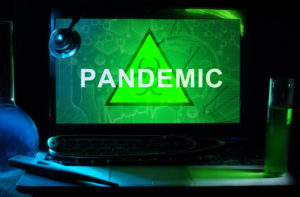By Rose O. Sherman, Ed.D., RN, FAAN
It is often said that while history does not repeat itself, it often rhymes. That is the underlying theme of Apollo’s Arrow’s written by Dr. Nicholas Christakis, director of the Human Nature Lab at Yale. Dr. Christakis has an unusual background in that he is both a hospice physician and a sociologist. In this book, he brilliantly looks at pandemics and plagues through both professional lenses to construct the story of what we see with the COVID-19 Pandemic. He places Covid-19 in the context of past epidemics: plague in ancient Athens, the Black Death in medieval Europe, polio epidemics in 1916 and the 1950s, influenza in 1918, and HIV in the 1980s.
Christakis explains some of the complexity of human behavior that we are currently seeing. It is somewhat reassuring that he notes that none of these behaviors are entirely new or unexpected. Most of the behaviors that we see today have also been seen in other pandemics and plagues. He points out that humans are complex beings with sometimes bizarre reactions to threatening situations. These perplexing behaviors seen in times of pandemics include:
- The resistance to masks – this same behavior was was seen in previous pandemics.
- Fear and denial play a significant role in the range of human responses in all pandemics.
- Superstitions about treatments for the pandemic.
- Looking for a country or group of people to blame for what is happening, such as blaming COVID-19 on China.
- A failure to listen to science if the information is seen as inconvenient to the public and policymakers.
- The defiant planning of super-spreader events.
- Widespread grief and despair.
- An increase in spirituality.
- Indifference to widespread mortality.
- Longing for one’s former life and desperately trying to hold on to parts of it even if it is dangerous.
- Mental health issues – Marcus Aurelius noted that the corruption of the mind was more dangerous than the epidemic itself.
- Resistance to those in positions of authority because of feelings of loss of control.
- A lack of respect for health care staff.
- Widespread susceptibility to conspiracy theories and misinformation.
- A failure to seek the truth and a willingness to be in denial and believe lies.
- Leadership ignoring what is happening – the author points out that Ronald Reagan never mentioned the AIDs epidemic until six years into his administration.
- Heightened awareness about inequality.
- A societal division between those who know someone who has died and those who don’t.
- Acts of true human kindness.
- A transmission of cumulative culture about how to cope.
Christakis points out that history has shown that societies change in many ways (some unpredictable) as they move out of pandemics. For healthcare, it has been one huge experiment in significantly decreased volumes and demand for services. Christakis predicts that we are likely to find, as they have in other pandemics, that people do better with less healthcare. It may change consumer habits when people learn through experience that most ailments go away on their own. If history is a guide – he contends that when herd immunity is reached, and the pandemic is over, there will be a re-enactment of the roaring 20s where people relentlessly seek the social opportunities they missed during the pandemic.
Reference
Christakis, N.A. (2020). Apollo’s Arrow: The Profound and Enduring Impact of Coronavirus on the Way We Live. New York: Little, Brown and Spark.
Launch 2021 by giving your leadership team the gift of a highly rated webinar – Nursing Leadership in 2021: Rebooting after a Life-Quake A Nursing Leadership Reboot Workshop
Read the Nurse Leader Coach – Available at Amazon and Other Book Sellers.
Coming Soon a New Book to Strengthen Your Leadership in 2021 – The Nuts and Bolts of Nursing Leadership: Your Toolkit for Success
© emergingrnleader.com 2021




 LinkedIn
LinkedIn Instagram
Instagram